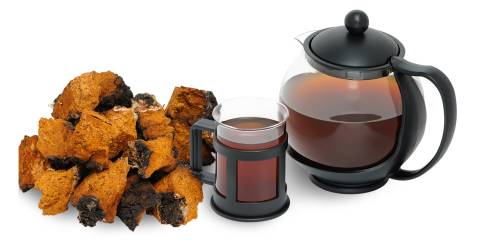This is not an effort to massage your ego. The fact is, your hair is as unique as you are—every single strand of hair on your head differs from every other strand. It has nothing to do with your personal DNA signature, although your genes determine color, thickness, texture, body, and even how long your hair will grow. To a great extent, what you “in-hair-it” is just plain luck.
Don’t despair: You do have some control over how your hair looks. Your health habits directly affect your hair’s appearance. Plenty of water, adequate rest and relaxation, and sufficient exercise are all important. A fresh, wholesome diet with plenty of fruits and leafy greens tops the list. Hair is 95 to 98 percent protein, so sufficient protein is a must. Healthy fats are also crucial to keeping hair shiny and strong.
Like nourishing food, nutritional supplements reinforce hair health from the inside out. Your daily multivitamin/mineral supplement provides a basic foundation, but three additional nutrients are directly involved in promoting healthy hair: omega-3 essential fatty acids (EFAs), the mineral silica, and the amino acid L-cysteine.
Supplemental Support
Diets that restrict fat and protein intake can result in dull, dry, thinning hair. “You can assume that you are not taking in enough essential fatty acids in your diet if you have dry, fragile hair,” says Lisa Petty, author of Living Beauty. EFAs nourish your hair and help it retain moisture. According to Andrew Weil, MD, the essential fatty acid gamma linolenic acid (GLA) offers a wide range of benefits, including promoting healthy hair. Since GLA is hard to come by in the diet, supplements may be necessary. Natural sources include evening primrose oil, black currant oil, and borage oil.
A constituent of teeth, bone, skin, nails, and hair, silica is imperative to the formation of collagen, the protein-based “glue” in our tissues. Silica boosts hair growth and strength. A 90-day uncontrolled study with silica showed improvement in the quality of hair, skin, and nails among 50 women who used it on their faces and took 10 ml a day in liquid supplement form.
L-cysteine is an amino acid that’s basic to the structure of keratin, the major protein in hair. The strength and elasticity of the hair depend on this protein. Supplemental L-cysteine helps improve hair quality, texture, and growth. (Even sheep require cysteine to produce wool.) Cysteine may inactivate insulin, so it’s important for people with diabetes to discuss cysteine supplements with a healthcare practitioner.
When choosing a daily multi, consider one with hair-enhancing nutrients. Some formulas include silica and cysteine as well as a variety of vitamins (particularly B vitamins, which are important to hair health and growth and help combat stress, a major enemy of your hair), minerals, and herbs.
Natural Products
At the mention of hair care, most people’s first thought is shampoo. Since many of us wash our hair every day, using effective, mild products is important. The shampoos and conditioners found in your local natural products store contain a variety of beneficial herbs and essential oils. Lavender, chamomile, calendula, nettle, sage, rosemary, aloe, and jojoba are all nourishing natural ingredients to look for. Horsetail and coltsfoot are high in cysteine and silica, so read labels for these ingredients as well.
All plants contain antioxidants to protect them from the sun and other ravages of exposure. Because hair holds moisture, it absorbs a certain amount of this protection when you use plant-based products. In particular, soothing aloe may help protect against ultraviolet (UV) radiation. Aloe is also antibacterial. In fact, your scalp benefits most from the herbs in shampoos and conditioners. Many herbs are both anti-inflammatory and antibacterial. Nettle, as well as sage and tea tree essential oils, may be found in dandruff-fighting products and provide an alternative to harsh antidandruff shampoos.
Many natural hair care products are cruelty free (not tested on animals) and produced without artificial colors or artificial fragrances. Most contain only minimal preservatives or use natural preservatives like vitamin E. Last of all, many natural shampoos contain no sodium lauryl sulphate (SLS), a detergent and foaming agent found to be a skin irritant, and other potentially harmful ingredients. Go for the safe, soothing, natural hair care products and shine on!
Natural Ingredients
Look for the following ingredients in natural hair care products:
- Aloe has antibacterial and moisturizing qualities.
- Calendula provides soothing and softening effects on the hair and scalp.
- Chamomile has a brightening and shine-enhancing quality, particularly for blond hair.
- Lavender has cleansing and astringent qualities.
- Nettle stimulates circulation to the scalp, which is beneficial for hair growth.
- Rosemary is a tremendous conditioner for the hair.
- Sage has antimicrobial and cleansing properties and conditions the hair.


